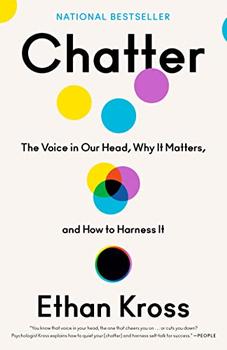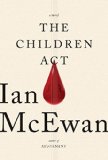Summary | Excerpt | Reviews | Beyond the book | Read-Alikes | Genres & Themes | Author Bio

A Meditation on Life and Death
by Erica BrownErica Brown accomplishes much with her new book, Happier Endings: Overcoming the Fear of Death, not the least of which is writing an engaging and uplifting manual on ways to die well. Brown blends humor, personal experience and solid research in her quest to learn about every aspect of mortality. Where other books focus on one aspect of death, such as grief, ethics or commercial concerns, Brown includes them all and synthesizes them into an approachable meditation on a topic many of us love to avoid.
The book opens with what is likely the most challenging and obvious barrier to dying well - fear. Brown's calm acknowledgement of a nearly universal emotion serves as a persuasion, rather than a deterrent; the importance of the rest of her text depends on our motivation to alleviate the anxiety and suffering that our deepest fear brings. She states her case from the opening sentence, arguing that it is exactly because death causes such apprehension that we should confront rather than deny the facts. She persuades us by letting us see her own qualms. We feel her discomfort as she participates in a Jewish ritual of body cleansing. We empathize with her struggle to help her grief-stricken aunt and uncle cope after a young cousin's unexpected death. We understand her shock and confusion when a well-loved colleague commits suicide. But in confronting and managing our fear, she coaxes us, we can experience a meaningful, purposeful, even peaceful death – and perhaps even help others do the same.
From here the chapters flow on, covering practical issues such as funeral planning and burial choices, as well as more weighty ruminations on life after death, grief stages and forgiveness. Brown's vulnerable voice is present and essential in all of this morbid information; her willingness to expose her varied personal experiences with death and to explore her own unanswered questions soothes us and keeps us reading even when the words and ideas are difficult. Each topic affords Brown the opportunity to examine, in front of her readers, her own beliefs, qualms, curiosities and doubts. Like a conversation with a thoughtful friend, Happier Endings allows us to explore end-of-life issues with someone who is honest and open-minded.
Readers often speak of the life-changing influence of favorite books, but Brown's work advocates most literally for its readers to initiate change. A book of this quality should provide just the motivation needed to thoughtfully consider and discuss death – minus, or even in the face of, the paralysis caused by fear, awkwardness or denial - and while there is still time. Many of the anecdotes Brown shares illustrate the importance of preparation in making the dying process less devastating for the dying individual and survivors alike. Reading about a woman who made sure every detail of her funeral was pre-arranged and who parted out her belongings to family ahead of time, for example, fosters motivation. As the author relates how much these actions helped the woman's children cope and celebrate their mother after her passing, how much it meant to them to spread her ashes on the exact ski slope that she requested, we ponder how we can offer the same gift to our friends and family. When Brown can find humor in the modern smorgasbord of choices involved in simply selecting a casket, we also lighten up a bit and chuckle over capitalism's influence on even the morbid. And if you don't think parking a car can successfully be compared to dying, think again, because Brown manages with great wit to do just that.
The inevitability of our own death, as well as our encounters with loss during life, should cause us to pause for at least a little while and consider both how we want to live and how we want to die – before illness, age or accident intervenes. This tour guide on dying seems the perfect companion for anyone who wants to face mortality with dignity and grace.
![]() This review was originally published in The BookBrowse Review in May 2013, and has been updated for the
May 2014 edition.
Click here to go to this issue.
This review was originally published in The BookBrowse Review in May 2013, and has been updated for the
May 2014 edition.
Click here to go to this issue.

If you liked Happier Endings, try these:

by Ethan Kross
Published 2022
An award-winning psychologist reveals the hidden power of our inner voice and shows how we can harness it to live a healthier, more satisfying, and more productive life.

by Ian McEwan
Published 2015
A fiercely intelligent, well-respected High Court judge in London faces a morally ambiguous case while her own marriage crumbles in a novel that will keep readers thoroughly enthralled until the last stunning page.
Your guide toexceptional books
BookBrowse seeks out and recommends the best in contemporary fiction and nonfiction—books that not only engage and entertain but also deepen our understanding of ourselves and the world around us.